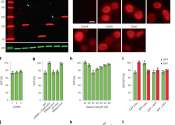Investigating the intestinal transport of mercury ions with a gut-on-a-chip device
The transport of mercury ions across intestinal epithelial cells can be studied for toxicology assessments by using animal models and static cell cultures. However, the concepts do not reliably replicate conditions of the ...








